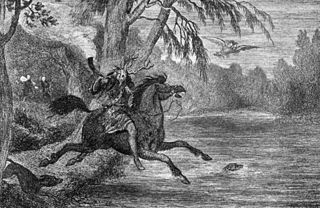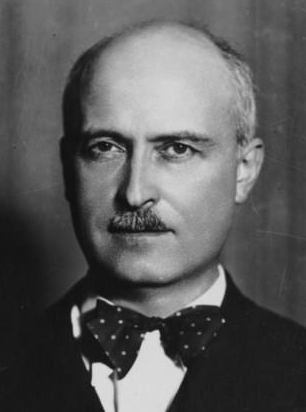Related Research Articles

Sir John Falstaff is a fictional character who appears in three plays by William Shakespeare and is eulogised in a fourth. His significance as a fully developed character is primarily formed in the plays Henry IV, Part 1 and Part 2, where he is a companion to Prince Hal, the future King Henry V of England. Falstaff is also featured as the buffoonish suitor of two married women in The Merry Wives of Windsor. Though primarily a comic figure, he embodies a depth common to Shakespeare's major characters. A fat, vain, and boastful knight, he spends most of his time drinking at the Boar's Head Inn with petty criminals, living on stolen or borrowed money. Falstaff leads the apparently wayward Prince Hal into trouble, and is repudiated when Hal becomes king.

Falstaff is a comic opera in three acts by the Italian composer Giuseppe Verdi. The Italian-language libretto was adapted by Arrigo Boito from the play The Merry Wives of Windsor and scenes from Henry IV, Part 1 and Part 2, by William Shakespeare. The work premiered on 9 February 1893 at La Scala, Milan.

The Merry Wives of Windsor or Sir John Falstaff and the Merry Wives of Windsor is a comedy by William Shakespeare first published in 1602, though believed to have been written in or before 1597. The Windsor of the play's title is a reference to the town of Windsor, also the location of Windsor Castle in Berkshire, England. Though nominally set in the reign of Henry IV or early in the reign of Henry V, the play makes no pretence to exist outside contemporary Elizabethan-era English middle-class life. It features the character Sir John Falstaff, the fat knight who had previously been featured in Henry IV, Part 1 and Part 2. It has been adapted for the opera at least ten times. The play is one of Shakespeare's lesser-regarded works among literary critics. Tradition has it that The Merry Wives of Windsor was written at the request of Queen Elizabeth I. After watching Henry IV Part I, she asked Shakespeare to write a play depicting Falstaff in love.

Jean-Marie Collot d'Herbois was a French actor, dramatist, essayist, and revolutionary. He was a member of the Committee of Public Safety during the Reign of Terror and, while he saved Madame Tussaud from the Guillotine, he administered the execution of more than 2,000 people in the city of Lyon.

In English folklore, Herne the Hunter is a ghost associated with Windsor Forest and Great Park in the English county of Berkshire. He is said to have antlers growing from his head, rides a horse, torments cattle, and rattle's chains. The earliest mention of Herne comes from William Shakespeare's 1597 play The Merry Wives of Windsor, and it is impossible to know how accurately or to what degree Shakespeare may have incorporated a real local legend into his work, though there have been several later attempts to connect Herne to historical figures, pagan deities, or ancient archetypes.

Carl Otto Ehrenfried Nicolai was a German composer, conductor, and one of the founders of the Vienna Philharmonic. Nicolai is best known for his operatic version of Shakespeare's comedy The Merry Wives of Windsor as Die lustigen Weiber von Windsor. In addition to five operas, Nicolai composed lieder, works for orchestra, chorus, ensemble, and solo instruments.

Jacques François Antoine Marie Ibert was a French composer of classical music. Having studied music from an early age, he studied at the Paris Conservatoire and won its top prize, the Prix de Rome at his first attempt, despite studies interrupted by his service in World War I.

Henry IV, Part 2 is a history play by William Shakespeare believed to have been written between 1596 and 1599. It is the third part of a tetralogy, preceded by Richard II and Henry IV, Part 1 and succeeded by Henry V.

Alexander Aleksandrovich Alyabyev, also rendered as Alabiev or Alabieff, was a Russian composer known as one of the fathers of the Russian art song. He wrote seven operas, twenty musical comedies, a symphony, three string quartets, more than 200 songs, and many other pieces.

Die lustigen Weiber von Windsor, or The Merry Wives of Windsor, is an 1849 opera in three acts by Otto Nicolai to a German libretto by Salomon Hermann Mosenthal based on Shakespeare's play. Published as a comical-fantastical work in three acts with dance (komisch-phantastische Oper in 3 Akten mit Tanz), its structure is musical numbers linked by spoken dialogue, harkening back to the then-outmoded Singspiel format. It remains popular in Germany and Austria and its overture is sometimes heard in concert in other countries.

Jean-Nicolas Bouilly was a French playwright, librettist, children's writer, and politician of the French Revolution. He is best known for writing a libretto, supposedly based on a true story, about a woman who disguises herself as a man to rescue her husband from prison, which formed the basis of Beethoven's opera Fidelio as well as a number of other operas.

Mistress Nell Quickly is a fictional character who appears in several plays by William Shakespeare. She is an inn-keeper, who runs the Boar's Head Tavern, at which Sir John Falstaff and his disreputable cronies congregate.
Sir John in Love is an opera in four acts by the English composer Ralph Vaughan Williams. The libretto, by the composer himself, is based on Shakespeare's The Merry Wives of Windsor and supplemented with texts by Philip Sidney, Thomas Middleton, Ben Jonson, and Beaumont and Fletcher. The music deploys English folk tunes, including "Greensleeves". Originally titled The Fat Knight, the opera premiered at the Parry Opera Theatre, Royal College of Music, London, on 21 March 1929. Its first professional performance was on 9 April 1946 at Sadler's Wells Theatre.

Jean-Pierre Solié was a French cellist and operatic singer. He began as a tenor, but switched and became well known as a baritone. He sang most often at the Paris Opéra-Comique. He also became a prolific composer, writing primarily one-act comic operas.
Bernardo Porta was an Italian composer who was active in France.
The Merry Wives of Windsor is an English play by William Shakespeare which was first published in 1602.

Robert Shallow is a fictional character who appears in Shakespeare's plays Henry IV, Part 2 and The Merry Wives of Windsor. He is a wealthy landowner and Justice of the Peace in Gloucestershire, who at the time of The Merry Wives of Windsor is said to be over 80.
Music in the plays of William Shakespeare includes both music incidental to the plot, as song and dance, and also additional supplied both by Shakespeare's own company and subsequent performers. This music is distinct from musical settings of Shakespeare's sonnets by later composers.
Alain Mottet was a French actor. He appeared in many films and on television, usually in a supporting role. He also acted in numerous stage productions.

Fiona Laird is a British theatre, television, and radio director, artist, and a writer, composer, and lyricist. In 2013, responding to UK cuts in performing arts education, Laird founded the National Youth Theatre Arts Trust.
References
- ↑ Nicoll, Allardyce (28 November 2002). Shakespeare Survey. Cambridge University Press. ISBN 9780521523547.
- ↑ Shakespeare, William. The Merry Wives of Windsor. Edited by Giorgio Melchiori. Arden Shakespeare Third Series. London: Bloomsbury, 2000, 90, also citing Dean's article "Shakespeare and Opera" in Phyllis Hartnell (ed.). Shakespeare and Music. 1964, 89-175, 120.
Barry S. Brook, Richard Viano and Julie Anne Sadie. "Papavoine" Oxford Music Online, January 2001. https://oxfordindex.oup.com/view/10.1093/gmo/9781561592630.article.20850